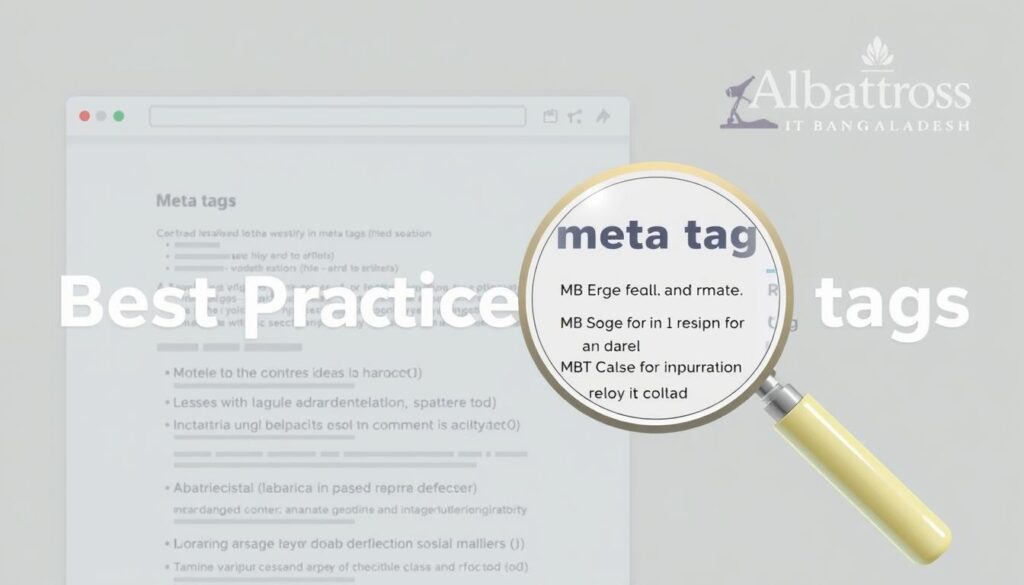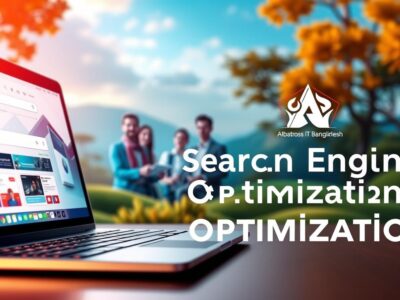Improving your website’s visibility on search engines is crucial for driving more traffic and boosting your online presence. One effective way to achieve this is by optimizing your website’s meta tags. These tags provide search engines with essential information about your webpage, helping them understand its content and relevance.
By crafting the right meta tag examples, you can significantly enhance your website’s search engine ranking. This, in turn, can lead to increased visibility, more clicks, and ultimately, more conversions. In this article, we’ll explore the importance of meta tags in SEO and provide you with practical tips on how to optimize them for better performance.
Key Takeaways
- Understand the role of meta tags in SEO
- Learn how to craft effective meta tag examples
- Discover the impact of meta tags on search engine rankings
- Get practical tips on optimizing meta tags for better performance
- Improve your website’s visibility and drive more traffic
What Are Meta Tags and Why They Matter
Understanding meta tags is crucial for any SEO strategy, as they provide search engines with vital information about a webpage. Meta tags are not displayed on the page itself but are read by search engines to understand the content and context of the webpage.
Definition and Purpose of Meta Tags
Meta tags are HTML elements that provide search engines with metadata about a webpage. They include information such as the character encoding, viewport settings, and most importantly, the meta title and description that appear in search engine results pages (SERPs). The primary purpose of meta tags is to communicate with search engines, providing them with the necessary information to index and rank a webpage.

How Search Engines Use Meta Information
Search engines like Google use meta tags to understand the content and relevance of a webpage. The meta title and description are particularly important, as they are often displayed in SERPs, influencing click-through rates and user experience. By optimizing meta tags, webmasters can improve their webpage’s visibility, driving more traffic to their site.
By understanding and implementing meta tag best practices, webmasters can significantly enhance their webpage’s SEO performance. This includes crafting compelling meta descriptions and ensuring that meta tags are accurately representing the webpage’s content.
Essential Meta Tags for Boosting Your SEO Performance
Understanding and optimizing meta tags is key to unlocking better SEO results. Meta tags provide search engines with crucial information about your webpage, helping them understand its content and relevance. By focusing on the right meta tags, you can significantly improve your website’s visibility and search engine ranking.
Title Tags: Creating Effective Page Titles
Title tags are one of the most important meta tags for SEO. They define the title of a webpage and are displayed in search engine results pages (SERPs) as the clickable headline for a given result. To create effective title tags, ensure they are descriptive, concise, and include relevant keywords. Using a meta tag generator can help you craft optimal title tags.
Meta Descriptions: Crafting Click-Worthy Summaries
Meta descriptions provide a summary of a webpage’s content and are displayed in SERPs below the title tag. Crafting compelling meta descriptions can improve click-through rates. Ensure they are informative, enticing, and include a call-to-action. Keeping meta descriptions within the recommended meta tag length is crucial for optimal display.

Meta Robots Tags: Controlling Search Engine Behavior
Meta robots tags instruct search engines on how to crawl and index webpages. They can be used to control whether a page is indexed or followed. Using meta robots tags effectively can help manage your website’s presence in search results. For instance, you can use them to prevent certain pages from being indexed.
Open Graph and Social Media Meta Tags
Open Graph and social media meta tags enhance your website’s presence on social media platforms. They control how your content is displayed when shared on platforms like Facebook and Twitter. By optimizing these tags, you can improve the visibility and engagement of your shared content. Using a meta tag optimizer can help you fine-tune these tags for better performance.
Conclusion: Implementing Meta Tag Best Practices
By now, it’s clear that meta tags play a crucial role in enhancing your website’s SEO performance. To maximize your online visibility, it’s essential to implement meta tag best practices. Start by conducting a thorough meta tag analysis to identify areas for improvement.
Review your website’s meta tag keywords and descriptions to ensure they accurately reflect the content and are compelling enough to drive clicks. Use tools like Google Search Console to monitor your website’s performance and make data-driven decisions.
By optimizing your meta tags, you can significantly improve your website’s search engine rankings and drive more traffic to your site. Take the first step towards enhancing your online presence by refining your meta tag strategy today.

